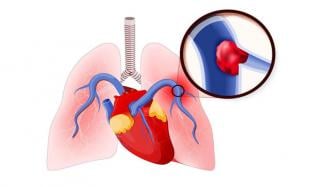
A new study into Alzheimer's has just found evidence of a brain and body connection, regarding the neurodegenerative disease, not to mention having paved the way towards “identifying novel biomarkers and therapeutic targets.”
The study took place at the Baylor College of Medicine in Houston, Texas.
Its co-corresponding author Dr. Hongjie Li, explained her efforts by running through what Alzheimer's disease is known for being, traditionally.
“Alzheimer's disease is a neurodegenerative disorder characterized by the accumulation in the brain of amyloid plaques containing the Aβ42 protein and tangles of thread-like structures of the Tau protein,” she said.
And “To better understand how the disorder affects other organs in the body, we created an Alzheimer's Disease Fly Cell Atlas, which profiles the genes expressed by single cells of 219 cell types in the heads and bodies of Alzheimer's disease fruit flies.”
It is pertinent to mention that this change was only done to male fruit flies, in order to avoid any developmental effects, and allowed scientists to observe the brain, among other organs.
Her graduate student who took part as well, Ye-Jin Park, explained how in the end, “We found that expressing Aβ42 or Tau in neurons affected both neurons and other tissues in the fruit fly body.”
Overall “Aβ42 expression primarily affected the nervous system,” and saw that “sensory neurons involved in vision, audition and olfaction were particularly vulnerable.”
Not to mention, “a decline in the sense of smell can be an early symptom of Alzheimer's disease, and in this study we identified specific olfactory neurons affected by Aβ42 in fruit flies.”
Dr. Hongjie Li’s co-first author Dr. Tzu-Chiao Lu, a postdoctoral associate in the Li lab also chimed in near the end and explained, “on the other hand, Tau expression in neurons led to significant changes, mostly in peripheral tissues, for instance altered fat metabolism and digestion and reduced fecundity (the ability to produce offspring).”
Overall “these alterations mimic age-associated changes, suggesting that Tau expression accelerates aging.” The researchers later also found that neuronal connectivity and other factors that mediate brain-body communication were disrupted in Tau flies.”















